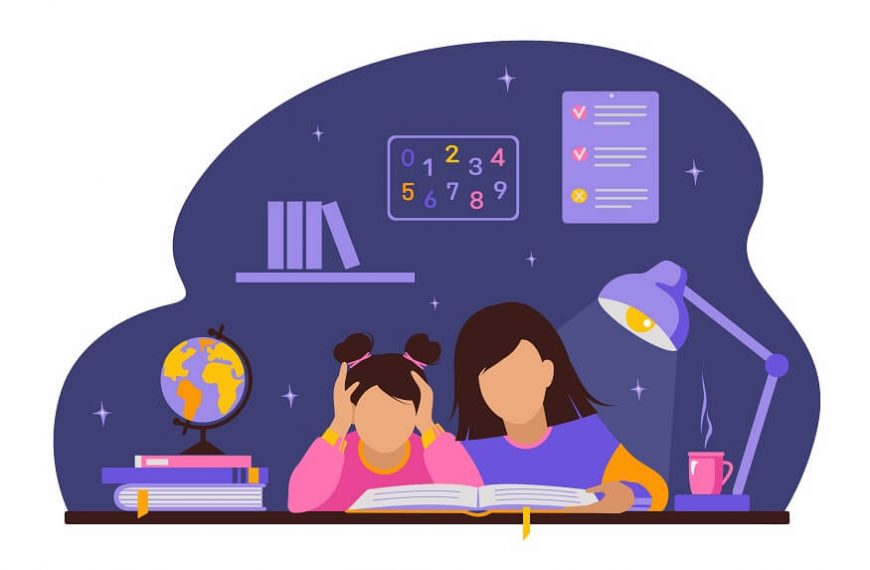Kids are cute to look at, especially when they do some of the funniest and craziest of things. However, as parents and caregivers, we must know where to draw the line between acceptable and unacceptable behaviour. It’s not an unknown fact that children learn from their mistakes. However, one can only learn from that mistake if the child is aware that it is a mistake. The responsibility for this lies entirely upon the parents. The key to behaviour management of your little ones lies in pointing out mistakes so your kids do not repeat them.
The consequences of allowing bad behaviour to go out of control can be dire in toddlers and children below eight years. As parents, it is important not just to nip it in the bud but also to be aware of how to reverse bad behaviour that has gone beyond all control. Before you learn the techniques to manage bad behaviour, it is important to know how to identify if your child’s bad behaviour has gone too far.
How to Know If Behaviour Goes Beyond All Control
The most common instinct as a parent is to protect your little ones and defend them and their actions. However, being in a state of self-denial will encourage your kids to continue to behave poorly. The first step in behaviour management is accepting that your child has a problem that needs to be dealt with. Some of the most common ways to identify if your child’s bad behaviour has gone too far include constant tantrums, continuous outbursts at home and in public, persistent resistance to instructions, and attention-seeking tactics. If you come back home only to find your walls ruined by crayons or your jewellery scattered all over the floor, you know that your child needs help.
Factors Leading To Bad Behaviour
- Changes in family life- Children are very perceptive, observant and quick to pick up changes that take place in a household. Some stress-causing factors like an unhappy marriage, divorce, child neglect or even focusing attention on another child can lead to persistent outbursts of anger in kids. Proper and systematic behaviour management techniques need to be implemented in these scenarios to provide kids with the assurance that they are being taken care of.
- Anxiety- While anxiety attacks are mainly associated with adults, they are also widely experienced by young kids. One of the major causes of anxiety in kids that leads to explosive and uncontrollable behaviour is peer pressure at school. Since they are placed in a competitive environment with many other kids, they develop social anxiety and inferiority complexes arising from the possibility of underachieving.
- Trauma- A child’s mind is more impressionable than one could ever imagine. Being aggressive with your kids or constantly reprimanding them for even the smallest of things could lead to a sense of trauma and culminate in depression. One of the most overlooked causes of trauma is bullying in schools which begins at a very young age. This kind of trauma alters the mindset and psyche of children and leads to persistent repulsive behaviour that can only be reversed through effective behavioural management techniques.
- Learning disabilities- Not all children are alike, some are quick at learning while others might be slower due to several learning disabilities. Two of the most common learning disabilities include ADHD (attention deficit hyperactivity disorder) and autism. Both conditions impede a child’s ability to retain information and lead to overall stress and outbursts.
Behaviour Management Techniques
- Healthy communication- This involves parents listening to the problems that their children experience and framing a sensitive response. It is crucial to remember that the more understanding you are with your little ones, the more open they will be with you. While you must show them that you are in charge, you must also show them that you care about their feelings. A family discussion during dinner time or a family outing on a weekend is the perfect way to connect with your children.
- Use the time-out method- This is a tried and tested method and is often considered to be one of the best ways to control a child with behavioural problems. As soon as your child resorts to temper tantrums or random outbursts, put him or her in time-out. Make sure that while you do so, you do it in a sensitive manner and in a safe place. The purpose of this method isn’t to scare or threaten the child but to teach him that bad behaviour has consequences.
- Be patient- Once your child’s bad behaviour has gone too far, it will take both time and effort to rectify such behaviour. Patience is the mother of all virtues. Make your child understand the reason behind not carrying out that act of bad behaviour.
- Develop routines- One of the best suggestions on how to control a child with bad behaviour problems is by creating regular routines. This could involve setting a lunch and dinner time or even involving your little ones in small chores or tasks around the house. This will, in turn, discipline your child and instil a sense of responsibility as well.
- Reward good behaviour- If you can recognize your child’s bad behaviour, you should also learn to praise his or her good habits and traits. When breaking behavioural patterns you need to reward your little one for doing the right thing. This will create a safe and positive atmosphere for your child to grow and go down the right path.
Here at EuroKids, we celebrate a child’s uniqueness and appreciate the talent of every child. Every child is different and that difference must be celebrated. We strive to bring about behavioural changes that are positive and lead to the overall growth of children. If you think that your kid isn’t facing behavioural consequences, let our team of experts step in and rectify their behaviour. Visit us at the nearest Eurokids centre near you.

















